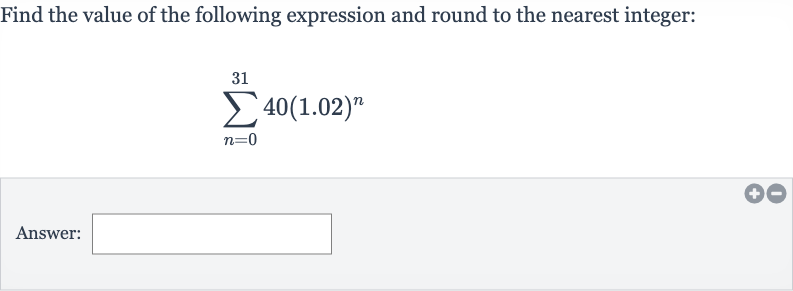Full solution
Q. Find the value of the following expression and round to the nearest integer:Answer:
- Given series information: We are given a geometric series with the first term and common ratio . The sum of a finite geometric series is given by the formula , where is the number of terms. In this case, we want to find the sum from to , which means there are terms.
- Calculate sum formula: First, we calculate the sum using the formula for the sum of a geometric series. We have , , and terms.
- Calculate : Now we calculate using a calculator.
- Substitute into formula: Substitute the value of into the sum formula.
- Calculate numerator and denominator: Calculate the numerator and denominator separately.Numerator: Denominator:
- Divide numerator by denominator: Now we divide the numerator by the denominator to find the sum.
- Round to nearest integer: Finally, we round the sum to the nearest integer.

